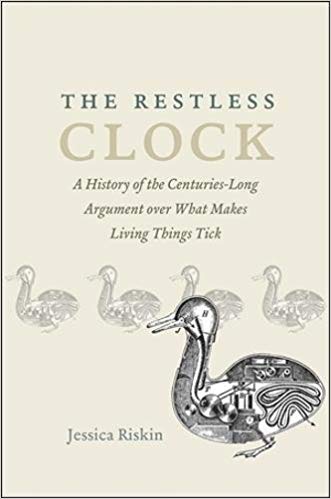
In this episode, EconTalk host Russ Roberts tells a story of watching a cardinal in his backyard bird feeder. The bird seems nervous, giving off an air of unease. But how can Roberts be sure that’s what the bird is feeling? As it flits back and forth between trees, is that “just instinct” in action, or does the cardinal actually have agency. How often do humans exhibit agency versus “instinct.” This story is at the heart of this week’s conversation, in which historian Jennifer Riskin joins Roberts to talk about her new book, The Restless Clock.
The title of Riskin’s book is a metaphor, intended as a contrast to a model of thinking about life as consisting solely of “brute mechanics.” Roberts sees an analogy here to the model of a market in equilibrium. Did he convince you of this relationship?
1- Why are we so attracted to metaphors? Does using metaphors as explanatory devices do more harm than good when talking about life forms? About the economy? (You may want to have a look at this Econlib article from 2011 by Max Borders.)
2- Riskin reminds us that “any explanation has to start somewhere,” and that people seem to like the idea of a first cause. As such, Riskin finds story-telling to be a most effective means of communication. What does she mean by a “story”? (She uses her research on Charles Darwin here, app. 50:00.) How might telling a story be better than using a model? How could economists make better use of story-telling?
3- Riskin asks a probing question (app. 30:00): “… if you adopt that model of living things as sort of passive clockwork-like mechanisms, can you then just take out the God part?” How would you answer this question?
4- Roberts brings up one of his own favorite phenomena toward the end of the conversation- emergence. Is emergence even more neglected in science than economics? How does Riskin answer this question from Roberts: “What is its importance in thinking about sentience? In thinking about the life-ness, the vitality of things?”
5- If Darwin had been able to read Joseph Schumpeter‘s work on creative destruction, how might that have helped him with his theory of evolution?


Comments are closed.